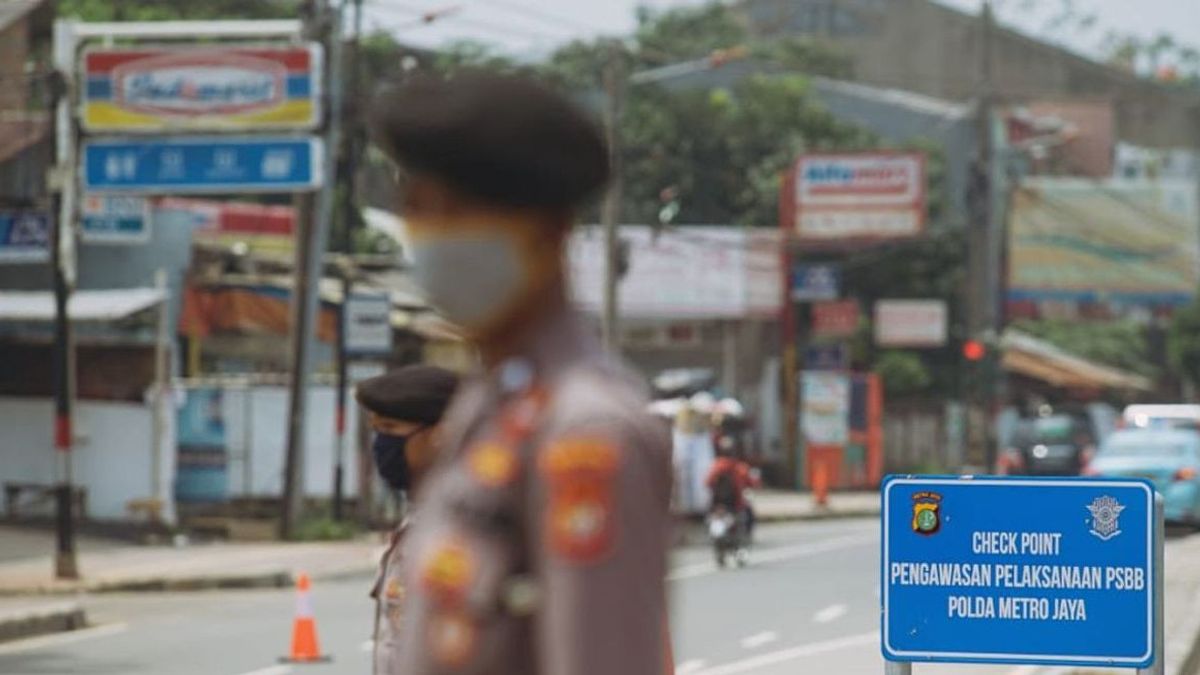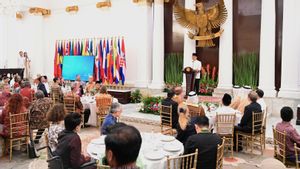JAKARTA - PP Muhammadiyah's Muhammadiyah COVID-19 Command Center (MCCC) calls for the central and regional governments to re-implement the Large-Scale Social Restrictions (PSBB) policy as at the beginning of the pandemic that hit Indonesia. At least, for all provinces in Java for a minimum of 3 weeks.
Chairman of the MCCC PP Muhammadiyah, Arif Nur Kholis said, the call refers to the current situation of the COVID-19 pandemic in Indonesia. Where based on government data through the Covid19.go.id website, there has been a very high increase in the addition of daily cases since March 2020.
Citing a source from vaccine.kemkes.go.id, Arif detailed, on 27 June 2021 there were 21,342 COVID-19 cases in a day spread across 33 provinces, bringing the total number of patients infected with the corona virus in Indonesia now reaching 2,115,304 people as of the first case was announced on March 2 last year.
"The positive rate has also increased sharply to more than 20 percent in 16 provinces in Indonesia," he told reporters, Wednesday, June 30.
Furthermore, Arif explained, there were five provinces with the highest addition of new cases of COVID-19. The five provinces are DKI Jakarta (9,394 new cases), West Java (3,988 new cases), Central Java (2,288 new cases), East Java (889 new cases), and DIY (830 new cases).
According to him, the sharp increase in the number of cases resulted in the risk of the collapse of health care facilities in Indonesia due to the lack of treatment rooms for COVID-19 patients, the lack of health workers and the lack of supply of medical logistics such as oxygen. Then personal safety equipment (PPE) along with the necessary medicines.
"The hospital bed occupancy rate (BOR) for COVID-19 patients has reached more than 90 percent in a number of areas. Meanwhile, self-isolation facilities (communal/private) outside proper health facilities are still very limited,” he said.
The limitations of this self-isolation facility, said Arif, have caused a large number of visits to hospitals, while hospitals are unable to accommodate and treat patients optimally.
"Many patients have to wait in the emergency room and many can't even get treatment at the hospital because the hospital can no longer accept Covid patients," he said.
On the other hand, the implementation of the Micro PPKM is not effective in suppressing the mobility of citizens both entering from abroad and moving between regions. Along with the entry into Indonesia new variants (Alpha, Beta, and Delta) with a very high transmission rate.
"Meanwhile, citizens' adherence to health protocols is very low and the achievement of COVID-19 vaccination is still very minimal," continued Arif.
Therefore, Arif emphasized that the PSBB policy will have to be accompanied by law enforcement that is not selective, firm action against hoax spreaders and social security for economically affected residents as long as the policy is enforced.
In addition to urging the re-enactment of PSBB, MCCC PP Muhammadiyah also urges the government to ensure the availability of health service facilities for COVID-19 patients by ensuring the availability of treatment rooms at health facilities, isolation facilities for OTG patients outside health facilities, guaranteeing the availability of medical devices, personal safety equipment, medical oxygen supply. and necessary drugs.
"The establishment of emergency hospitals in various regions in Java is urgently needed to respond to the number of hospitals that are unable to accept COVID-19 patients anymore because they are full," he said.
MCCC PP Muhammadiyah also asked the government together with community leaders, religious leaders, scientists and the media to unite in mobilizing social solidarity for residents affected by the economy's mobility restriction policies and mobilizing community adherence to the implementation of health protocols.
"This includes mobilizing public awareness to participate in vaccinations and reducing the circulation of misleading information among the public," concluded Arif Nur Kholis.
The English, Chinese, Japanese, Arabic, and French versions are automatically generated by the AI. So there may still be inaccuracies in translating, please always see Indonesian as our main language. (system supported by DigitalSiber.id)










